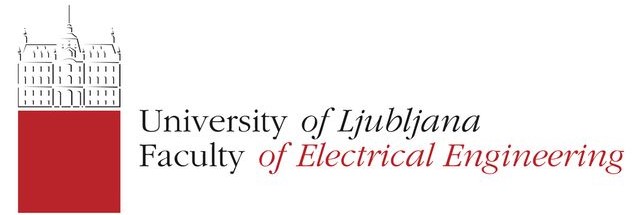Workshop: Task parallelism as a universal concept
UL, Fakulteta za elektrotehniko
The interactive workshop is designed for the general audience without programming knowledge, interested in using supercomputers, where concepts such as parallelization, concurrency, and synchronization will be explored through everyday examples.
Description: The interactive workshop is intended for a general audience interested in using powerful computers or supercomputers, but who do not have prior programming knowledge. Through examples from everyday life, we will illustrate how people already intuitively use concepts such as parallelization, concurrency, task and data decomposition, synchronization, and scalability in everyday life. In this way, participants from various fields will be able to assess whether their computational and analytical problems are suitable for solving with the help of a supercomputer or other parallel architectures. We will describe the role of parallelization in the efficient use of modern computers and supercomputers. Participants will have the opportunity to solve tasks from everyday life with the help of workshop organizers and connect them with the presented concepts.
Workflow: The workshop will take place over one afternoon, with the option of physical attendance in one of the lecture rooms or virtual attendance via MS Teams. We will ensure high-quality sound and image for virtual participants as well. The use of a chalkboard will also be employed to create a more dynamic atmosphere.
Difficulty: basic
Language: English
Recommended prior knowledge: Not required
Target audience: Researchers, students, professors
Knowledge gained from training:
• Understanding the Basics of Parallelization: Participants will gain a foundational understanding of the basic concepts of parallelization, such as concurrency, task and data decomposition, synchronization, and scalability. This will enable them to have a better understanding of how these concepts are utilized and optimized in practice.
• Practical Application of Parallelization Concepts: Participants will acquire practical skills for working with parallel computing systems. This includes the ability to identify opportunities for parallelization, use of appropriate tools and techniques, and measuring and analyzing the efficiency of parallelized systems.
• Using Everyday Examples to Understand Parallelization: Through examples from everyday life, participants will gain a better understanding of how parallelization concepts are applied in the real world and how they can enhance the efficiency of computing systems.
• Establishing a Basis for Further Learning and Exploration: Participants will establish a basis for further learning and exploration of parallelization. They will be able to understand and follow advanced concepts and techniques, study the latest research in this field, and explore how they can apply this knowledge to their personal and professional projects.
.
Location:
1.) Physical: Faculty of Electrical Engineering, Tržaška 25, Ljubljana - Lecture room P11 (no in-person option due to insufficient demand).
2.) Virtual: https://uni-lj-si.zoom.us/j/96791855155
Organiser:
University of Ljubljana, Faculty of Electrical Engineering

Lecturers:
Janez Perš
Janez Perš is an Associate Professor at the Faculty of Electrical Engineering at the University of Ljubljana. His research areas are computer, machine, and robotic vision, parallel and distributed systems, and human movement analysis. He is the course holder for Embedded Systems, Computer Vision, Imaging Technologies, and Communications in Automation.
E-mail: janez.pers@fe.uni-lj.si
Janez Križaj
Janez Križaj is a researcher at the Faculty of Electrical Engineering at the University of Ljubljana. His research areas are deep learning, computer vision, biometrics, face recognition, pattern recognition, and image processing.
E-mail: janez.krizaj@fe.uni-lj.si

Fakulteta za računalništvo in informatiko, Univerza v Ljubljani